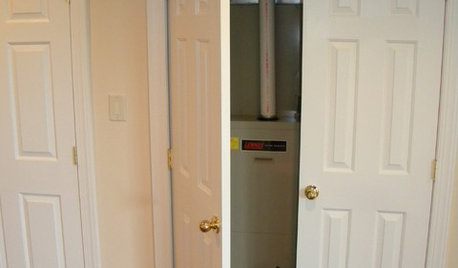Mortgage Payments - Head Exploding!
bbaird
15 years ago
Related Stories

MONTHLY HOME CHECKLISTSTo-Dos: Your January Home Checklist
It’s time to lighten up, cozy up and get organized as we head into a new year
Full Story
MOST POPULARA First-Time Buyer’s Guide to Home Maintenance
Take care of these tasks to avoid major home hassles, inefficiencies or unsightliness down the road
Full Story
MOVING9 Things New Homeowners Know to Be True
Just moved into a new home? Congratulations! The fun is about to begin
Full Story
SMALL SPACESLife Lessons From 10 Years of Living in 84 Square Feet
Dee Williams was looking for a richer life. She found it by moving into a very tiny house
Full Story
SMALL HOMESHouzz Tour: Teatime for a Tiny Portable Home in Oregon
A tearoom, soaking tub and bed of tatami mats recall Japan in this 134-square-foot house on wheels
Full Story
DECORATING GUIDESBudget Decorator: Let’s Go Thrifting
Dip into the treasure trove of secondhand pieces for decor that shows your resourcefulness as much as your personality
Full Story
LIFE10 Reasons to Be Happy You’re a Renter
Homeownership has many benefits, but there are upsides to not owning a home too
Full Story
KITCHEN DESIGNHow to Keep Your White Kitchen White
Sure, white kitchens are beautiful — when they’re sparkling clean. Here’s how to keep them that way
Full Story
LIFEHow to Build Your Housekeeping Muscle
Train yourself to clean and organize until the routine becomes second nature with this step-by-step approach
Full Story
HOUZZ TOURS13 Character-Filled Homes Between 1,000 and 1,500 Square Feet
See how homeowners have channeled their creativity into homes that are bright, inviting and one of a kind
Full StoryMore Discussions








dave_donhoff
bbairdOriginal Author
Related Professionals
Fort Lewis Architects & Building Designers · Chillicothe General Contractors · Hamilton Square General Contractors · Newington General Contractors · North Lauderdale General Contractors · North New Hyde Park General Contractors · Parsons General Contractors · Rancho Santa Margarita General Contractors · West Lafayette General Contractors · Wolf Trap General Contractors · Honolulu Home Stagers · Seattle Home Stagers · Westminster Home Stagers · Shorewood Interior Designers & Decorators · Tahoe City Interior Designers & Decoratorsscdeb424
mary_md7
brickeyee
mandogirl
mandogirl
dave_donhoff
bbairdOriginal Author
cissado
brickeyee
bbairdOriginal Author
brickeyee
bushleague
brickeyee
cissado
brickeyee
dilly_dally